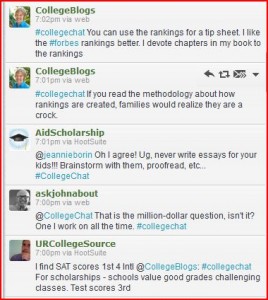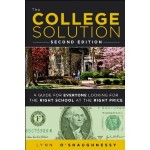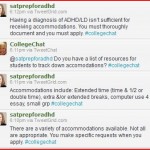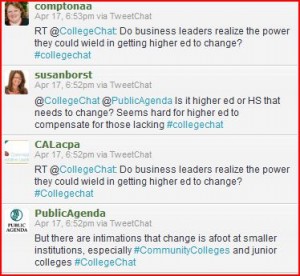 Last night, Lynn O’Shaughnessy, a bestselling author and higher education journalist, shared advice from her newly published book The College Solution: A Guide for Everyone Looking for the Right School at the Right Price (2nd Edition) during #CollegeChat on Twitter.
Last night, Lynn O’Shaughnessy, a bestselling author and higher education journalist, shared advice from her newly published book The College Solution: A Guide for Everyone Looking for the Right School at the Right Price (2nd Edition) during #CollegeChat on Twitter.
We had an interesting discussion revolving around how to find the right school at the right price. We covered the following topics:
- What are the biggest sources of college money.
- How can you increase your chances of qualifying for merit scholarships.
- How can you evaluate the generosity of a school before applying.
- Where to find the best online tools to evaluate colleges.
- What do families of divorce need to know about financial aid.
- How to use net price calculators.
You can read the entire 34 page transcript here Collegeblogs Transcript 5-15-12







